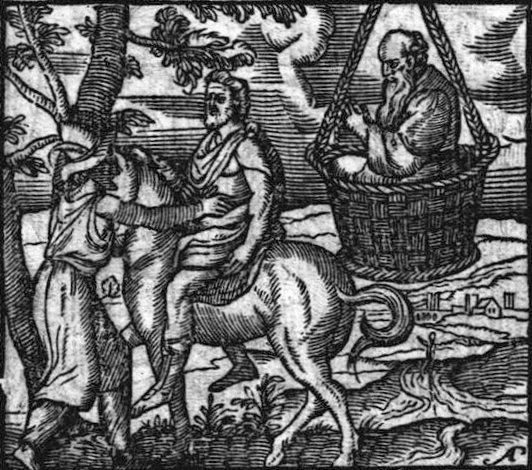Several factors combine to make our discordant times more perilous than most of those in America's past.
Engaging and Knowing: The Cart and the Horse
The thoughtful and meticulous analysis by our friend Joseph Knippenberg got me thinking about civic engagement. Well, that’s not quite true. I was already thinking about it while trying get a book done on the technocratic threat to higher education (which is greater than the politically correct threat to higher education, although the two are not unrelated).
There is an expert-driven trend in higher education–facilitated by foundations, the American Political Science Association, professors of political science and professors of education–to transform the teaching of political science through civic engagement. The literature on this is full of jargon and otherwise depressingly low in its cognitive pay grade. The consensus seems to be the need for a third way of studying politics. One approach, allegedly rigorously scientific, is the nonpartisan detachment of the behaviorist. Another is the textual approach of political philosophers, who talk about what Plato said Socrates said while hanging out in the marketplace but never actually take students to such a public forum. The third way is for students to learn through actually participating in political life.
Why is the third way not more Socratic? Socrates’ “self-instructional method” of engagement began after a long and bookish encounter with natural science and philosophy (which weren’t distinguished in those days). His primary aim was not to have a transformative effect on his political community; he often suggested, despite his unrivaled learning and facility at “critical thinking,” that he didn’t know enough to be able to confidently engineer such an effect. It’s the sophists who had the misplaced confidence; their methodical sophistication, they supposed, would enable them to make things better.
At the polar opposite of the sophists were indignant democratic citizens, who were all about caring and doing but weak on knowing. Socrates noticed that their doing didn’t often make them smarter or more astute, especially when they were young. In a model country, citizens would be as learned as sophists and sophists would be as morally responsible and genuinely concerned as devoted citizens. Actually citizens should know more, because they would not only have reflected, with the sophists, on the methods of acquiring wealth and power but also on the worthy purposes of particular human lives that wealth and power should serve. It’s quite a challenge for a citizen genuinely to know what he needs to know to do his job, and most of it can’t be learned on the engaged streets of the democratic marketplace or civic assembly.
Now Alexis de Tocqueville did write with great astuteness about citizens engaged in political life. That engagement was, in fact, a kind of learning, the kind that comes from dealing firsthand with the particulars of a public project and not trusting in “general ideas” about political reform. It was also a way of making individuals feel like citizens. What begins as calculation–I’m entering the public square and getting involved to help myself–turns into an instinct. That sort of engagement, Tocqueville explains, begins with necessity—with being immersed in a community that governs itself, at least on local matters. It’s not some abstract “learning experience” or for a grade in a course; it’s essential to a way of life.
The point of the residential college is to be temporarily detached from the rigors of the marketplace or the duties of democratic political life. That detachment is an indispensable prelude to the engagement of the whole person who goes on to work, raise children, rule and be ruled in turn.
All this means, to use the jargon, that “civic literacy” is prior to “civic engagement.” Even rudimentary civic literacy ain’t easy in a country with a long and highly textual political tradition rooted in a complex (if brief) written Constitution. The prelude to engagement, our theory of higher education says, is spending quality time learning who you are and what you’re supposed to do. Those who prioritize engagement, in contrast, tend to think that it’s easy to know what we should do but getting ourselves to do it is hard. In truth, both are hard, and the two just aren’t simultaneous.
So college is about the books that made Atticus Finch the courageous civic engager he was. Or, to return to real life, the books that made MLK the agent of change that he was. His words, which didn’t come easily, were as indispensable as his deeds. Dr. King tells us that the men of Morehouse made him fearless; they prepared him for a life of civic and even theologically informed action. Studies show that those with civic literacy–and this is inseparable from a broader liberal education in a country like ours–are more likely to get involved and make a difference as citizens as a form of lifelong learning and doing.
The takeaway here is not that college students should not be engaged in causes and campaigns. It’s only that they shouldn’t get college credit for it. And it’s not that college courses in political science shouldn’t be taught from the point of view of citizens and statesmen. They should. It is the case, after all, that our complicated constitutional democracy requires that ordinary citizens be literate enough to evaluate for themselves, with genuine constitutional literacy, the decisions of the Supreme Court. If they don’t have the competency, as Lincoln said in reference to the notorious Dred Scott opinion, then we live in a country where the people have ceased to be their own rulers.


